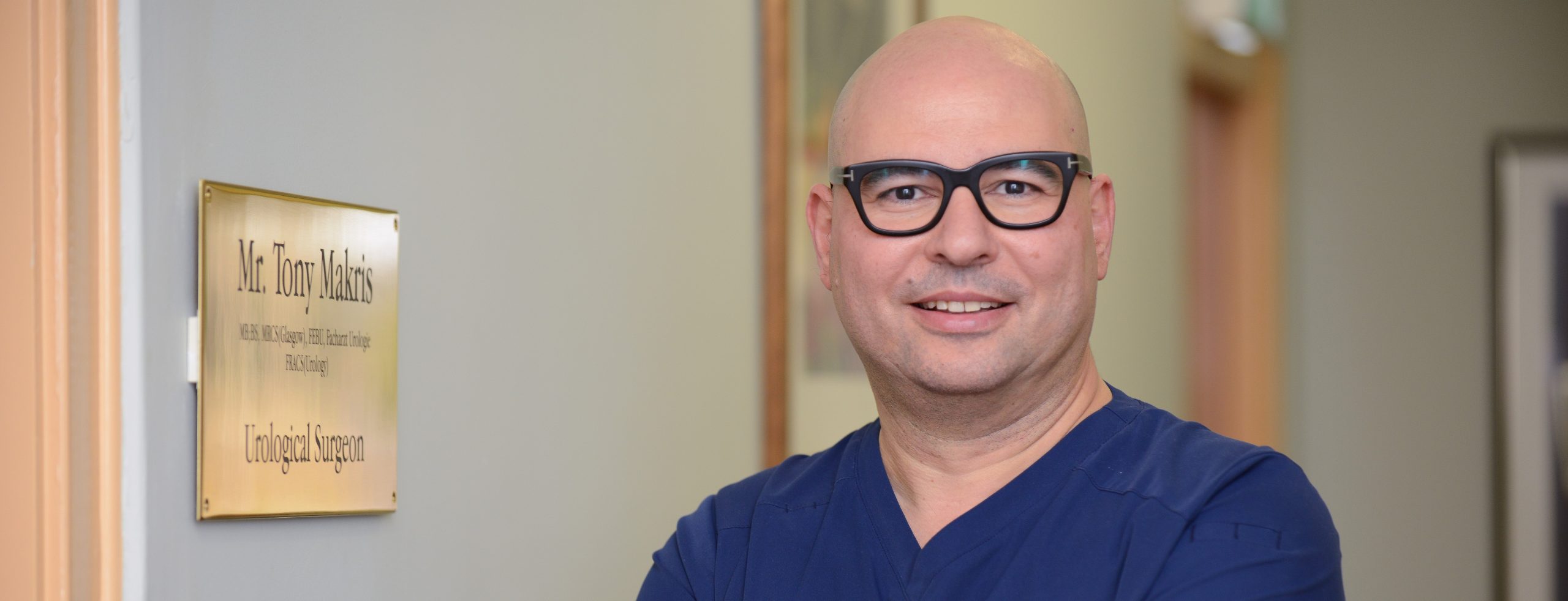Prostate Cancer
About prostate cancer
Prostate cancer is the most common cancer in Australian men after non-melanoma skin cancer. It does not have a single cause, and multiple genetic and environmental factors can contribute to its development.
In its early stages, prostate cancer may not have obvious symptoms. As a result, regular health examinations are essential to identify it in the earlier stages.
At Paradigm Urology, prostate cancer is managed by Dr Tony Makris. Dr Makris is a urologic surgeon with extensive experience in urologic oncology.

How is prostate cancer diagnosed?
Digital rectal examination (DRE)
Your doctor will usually perform a digital rectal examination, or DRE. A gloved, lubricated finger is inserted into the rectum and used to feel the prostate’s size and consistency. If it feels irregular or hard, other tests will be used to investigate further.
Blood test
A blood test may be used to see how much prostate-specific androgen (PSA) is present in the blood, which can indicate a number of prostate conditions. An elevated PSA level does not always indicate prostate cancer, but is usually cause for further investigation.
MRI
An MRI may be used to further assess the prostate. This uses a powerful magnet (not radiation) to assess the prostate. It can indicate specific areas of the prostate which need to be biopsied.
Prostate biopsy
A prostate biopsy is a surgical procedure which involves taking a sample of tissue containing cells from the prostate. The sample is examined under a microscope by a pathologist to determine if cancer is present, what type it is, and its grade.
How is prostate cancer treated?
Prostate cancer treatments depend on the grade of the cancer, its likelihood of spreading, and your overall health. Dr Makris will take plenty of time to discuss all your options with you and your family, and explain which are most suitable for you.
Therapies recommended for you may include:
Surgery
Surgery usually removes the prostate, seminal vesicles, and sometimes the pelvic lymph nodes. Prostatectomy has a high curative rate in patients whose cancer has not spread outside of the prostate.
Radiation therapy
Radiation therapy uses x-rays to destroy cancer cells in targeted fashion. It may be employed instead of prostate surgery, or in combination with it. Many men find it helps reduce pain and other cancer symptoms if the cancer has spread. Radiation therapy is administered by radiation oncologists. Dr Makris has a very close working relationship with the local radiation oncologists at Peter Mac in Bendigo and Melbourne.
Active surveillance
This option is the standard of care for low risk prostate cancer. It involves regular visits to the urologist for PSA blood tests and clinical examination. The intention is to delay treatment until the cancer changes or becomes more aggressive.
Watchful waiting
If your prostate cancer is small and slow-growing, treatment may decrease your quality of life without providing significant benefits. In this case, a watchful waiting (WW) program may be instated to monitor your symptoms and prompt action if there is a change.
Other systemic therapies
Approaches such as chemotherapy may be used when the cancer has spread outside of the prostate. They are generally not used for curative treatment, but can help prolong and improve quality of life.
Prostate procedures
Paradigm Urology offers a range of surgical prostate procedures including:
- Bladder neck incision
- TURP
- TURP for cancer
- Urolift
- Robotic prostatectomy
- Open removal of prostate for benign disease
- Radical retropubic prostatectomy
- Transperineal/transrectal Prostate Biopsies
- Transeperineal insertion of seeds and SpaceOAR implantation